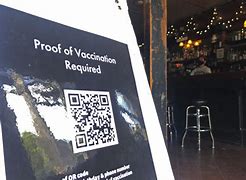Below is a review of the posts (on Facebook, LinkedIn, and Twitter) from the past week. You can check out the full posts by clicking on the links.

In the post on Sunday 1/23/2022 a reminder: W2s due to employees soon – things to know! This time every year there is a (mad?) rush to ensure W-2 forms are to employees by January 31. But there is news this year that might impact employers. Mandatory e-filing didn’t happen – unless you have over 250 employees. Ok, what else? Box 14 reporting on the form deals with voluntarily-provided paid sick/family leave (because the federal CARES Act requirement expired at the end of 2020). The IRS has specified what foes into Box 14 as noted in the post. The IRS also has some optional model language you can use to explain all of the possible entries to employees. A link to that language is in the post. And remember that paid leave is taxable to employees so you must report it in Boxes 1-6 of their W-2 forms. And there’s more. For some (ok, many) employees, the numbers in Boxes 1, 3 and 5 won’t match, but that is not a mistake. So as to lessen the number of frantic calls from employees, give them a fact sheet explaining what those boxes show and why they may validly differ. Explanations that you can use in that fact sheet are in the post.
TAKEAWAY: Not only must employers get the W-2 forms to employees by January 31, they must be correct, so know what the numbers mean and where they come from.

The post on Monday 1/24/2022 showed us that employers may be able to discharge unvaccinated workers under the employment at will doctrine. We noted that while the cases discussed came out of Louisiana, this would most likely play out the same in PA. So what happened? The LA Supreme Court ruled in 2 unanimous decisions issued January 7th that private employers may mandate COVID vaccines for employees. The background: in August 2021, the employer, a healthcare system, gave employees 2 months’ notice to get fully vaccinated or that employment might be terminated. 75 employees in separate locations filed suit. On what they based their case is noted in the post. The court there explained why the argument failed, leaving them at-will employees subject to a private employment relationship. The court did recognize the possible exemptions to a vaccine mandate as noted in the post.
TAKEAWAY: In this ever-changing vaccine landscape, it is imperative that employers know what they can and cannot mandate for employees – it is best to consult an employment lawyer for guidance.

The post on Tuesday 1/25/2022 was about processing vaccination accommodation requests under the ADA. We are talking about medical requests for accommodation, not those based on religious beliefs (which must be dealt with under Title VII). First, if the disability and need for accommo-dation are not obvious or already documented, the employer can require reasonable documentation There is no specific form required, but a link to a template that can be modified for your purposes is in the post. Once you have that, the rest of the process starts. The initial question to ask is whether the inability to be vaccinated is based on a disability. You should now have the medical documentation and be able to answer that. If the answer is NO, the process is complete (but other laws or policies might then apply). If the answer is YES, then the next questions/steps are as outlined in the post – along with guidance from the EEOC that bears on those questions/steps. Develop a flow-chart or outline or checklist to be used when processing all accommodation requests
TAKEAWAY: As more and more (public and private) employers impose mandatory vaccination in an attempt to keep COVID-19 and its variants at bay, it is imperative that employees and employers know and follow the reasonable accommodation process.

The post on Wednesday 1/26/2022 reminded us that neighbors may not be your allies: how to buy in a condo or homeowners’ association. Your interests and those of your neighbors may not always be in alignment. Lisa and Donald own a large home that might fall into the Buffalo Bayou; they blame the HOA for not maintaining the shoreline. The HOA’s Board came up with a plan having a price tag exceeding $1M (one million dollars!) to strengthen the shoreline. But owners said no (why? See the post). One neighbor was pretty brazen in the reasoning and is quoted in the post. The HOA’s attorney says that it has no obligation to fortify the shoreline and that Lisa and Donald knew about the erosion and (lack of) repaid obligations when they purchased their home. If the attorney is correct, then that puts the problem solely on Lisa and Donald. Another recent and tragic example of how this scenario plays out in many planned communities is what happened in Surfside, Florida, where 98 residents were killed. The investigation is ongoing, but what the condo association knew and when is noted in the post. So what can potential buyers do before signing at the X? Review the Declaration, Bylaws and Rules & Regulations (Governing Documents) and other documents to be provided by the builder or seller before closing. Look for many things, including the status of reserves for planned expenses, potential issues that might arise in the future, and more as noted in the post. You don’t want to be the board that imposes, or owner who gets hit with, a special assessment when an expense comes in that is not supported by sufficient reserves or, worse yet, is unexpected. And what about Lisa and Donald? They sued and … see the post.
TAKEAWAY: Before investing hard-earned money and your future in a home in a community with a condominium or homeowners’ association, consult a community association lawyer to find out your rights and obligations and those of the association.

In the post on Thursday 1/27/2022 we saw feathers ruffled in city chicken ordinance discussion – with consideration to homeowners’ association. Sounds confusing, right? But it’s really not. A draft ordinance dealing with whether residents can own chickens was read at a city commission (council) meeting. Then citizens were allowed to make comments. One resident thinks it is an issue for voters and not the commission. Others agreed. Other comments went to health and safety issues – see the post. But then a commissioner raised the question of what if an HOA had restrictions against residents having chickens. How that would be handled is noted in the post – and is not what you would expect. And then the slippery slope that ensues – also as discussed in the post. The city manager gave her opinion on how that situation should play out – and it is what you would expect. The mayor backed up what the city manager said. Someone moved to amend the proposed ordinance as noted in the post; that received a second. How that vote went, and the rest of the discussion on the proposed ordinance, is in the post.
TAKEAWAY: There is often a contradiction between restrictions in local ordinances and those in the condo or homeowners’ association – know which applies in any given situation. Get good legal advice.

The post on Friday 1/28/2022 asked: So now what do employers do since the Supreme Court (SCOTUS) halted implementation of the OSHA vaccine-or-test Rule/ETS? The Court did not decide the validity of the ETS, but merely stayed it while the lawsuits wind through the lower courts. The arguments cited by the Justices in support of the stay are discussed in the post (as well as the arguments of the dissenting Justices). And now, after publication of the post, OSHA has withdrawn the proposed ETS. So now what? Employers can still impose a vaccine mandate and then deal with requests for accommodation (see our post on Tues. 1/25/2022 for more on the ADA accommodation process). But even without the ETS, due to the number of cases and variants, more and more employers are imposing vaccination mandates.
TAKEAWAY: Employers and employees must know their rights in the fact of a vaccination mandate and requests for accommodation; consultation with an employment lawyer is recommended.

Finally, in the post yesterday 1/29/2022, we learned about designating unvaccinated employees as a ‘Direct Threat’ to others under the ADA – know the considerations. Omicron – and now another variant that it even more transmissible – have employers worried about the safety of employees in the workplace. So how do vaccine mandates – whether local, state or federal or imposed by the employer – play our in the face of those safety concerns? Employees can of course request an accommodation to the mandate for medical or religious reasons. And then as part of the accommodation process the employer must consider whether, if accommodation must be provided, it can be so provided and allow unvaccinated employees in the workplace to not pose a ‘direct threat’ to their health or safety or that of others in the workplace. So what types of things play into that determination? Not necessarily the things to be looked at under the ADA (as in our post on Tues. 1/25/2022), but the other considerations noted in this post including proximity to high-risk individuals and more. And on what do employers base their assessment of whether a direct threat exists? The best evidence that exists at that time for each individual situation, including nature of the job and more as listed in the post. Similar facts may lead to different outcomes in different workplaces. And the answer may be affected by the virus itself, i.e., which variant is circulating at any given time. See the post for more on the analysis from that angle.
TAKEAWAY: Again, know the law and what is or is not required – or allowed- in the face of vaccine mandates and requests for accommodation.

 York, Pennsylvania 17403
York, Pennsylvania 17403